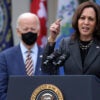Over the last 18 months, the American economy has grown at a record-breaking rate, and the results have had a far-reaching positive impact on communities nationwide.
Since January 2017, 5.6 million jobs have been created with the help of Republican-led tax reform, deregulation, and other pro-growth reforms. The unemployment rate is near a 50-year low with 224,000 jobs added to the economy last month, surpassing economists’ expectations.
At the same time, wages have risen over 3% for an astounding 11 consecutive months. Even The New York Times has admitted that wage growth is in a “higher gear” and is “going to those who need it most.”
Our nation is in the midst of enjoying the best economy we have seen in a generation.
These results did not occur by accident. They transpired because policymakers made an intentional choice to allow free enterprise to flourish and remove unnecessary burdens on families and businesses.
But our economic progress can, and will, be overturned if Congress tries to control the economy from within its bubble in Washington, D.C., as Democrats are attempting to do today.
Their latest Washington-centric proposal is the Raise the Wage Act, legislation that would artificially raise the federal minimum wage to $15 an hour—over twice its current amount.
This bill is another misguided attempt by Democrats to impose one-size-fits-all policy on the American people. It is backward-looking and proves that Democrats are dead set on erasing the progress our economy has made since President Donald Trump took office.
The nonpartisan Congressional Budget Office recently released a study that indicates a $15 minimum wage could result in jobs lost and hurt the very people Democrats claim to want to help.
According to the study, a $15 minimum wage could lead to the loss of as many as 3.7 million jobs. Those losses would fall disproportionately on entry-level workers. Younger workers could account for 46% of the job losses.
Individuals without high school degrees could account for 38%. This means that our most economically disadvantaged population will find it even more difficult to break into the job market, hindering their ability to achieve financial independence.
This disastrous policy would also hurt our working families. About 42% of families with a minimum-wage earner would see a net reduction to their family income. The same Congressional Budget Office report estimates that total real family income could be reduced by $9 billion. That means less money for things that matter: bills, essential expenses, or perhaps the occasional meal out.
There are already real-life cases of local economies being hurt by minimum wage increases.
In Oakland, child care providers, restaurants, and grocery stores either scaled back on staff or closed entirely after the city’s minimum wage went from $9 to $12.25 an hour in 2015. Likewise, after Seattle passed a $15 minimum wage, higher labor costs for child care led to increased tuition costs for families and fewer hours for employees.
As the residents of cities like these know, when government raises the minimum wage, the harms are not just estimations, but carry demoralizing consequences.
I had the privilege of starting my own deli business when I was younger. One of the most important things being a small business owner taught me was that you are the first to work, last to leave, and the last to get paid. I also know how thin the margins are, which makes it easier to understand firsthand how unnecessary regulations, taxes, and mandates can prevent businesses from hiring and expanding.
Throughout our nation’s history, financial independence has been the essence of the American dream. As lawmakers, we have a responsibility to ensure government does not impose economic barriers that interfere with that independence.
History tells us that heavy-handed Washington policies, for all the good intentions of their advocates, only limit opportunities for the individuals who need them most.
Even Alan Krueger, the former chairman of President Barack Obama’s Council of Economic Advisers, has warned that “a $15-an-hour national minimum wage would put us in uncharted waters, and risk undesirable and unintended consequences.”
Why risk “undesirable” consequences when we already know the positive economic trends of the last 18 months have brought greater prosperity for all Americans?
The Raise the Wage Act would jeopardize those incredible gains by increasing the costs for businesses and consumers. Ultimately, it would mean the difference between a few individuals getting a modest pay raise while others are left with no paycheck at all.
The most effective way to continue to unleash our country’s economic potential is by keeping Washington bureaucrats out of Americans’ paychecks.






























